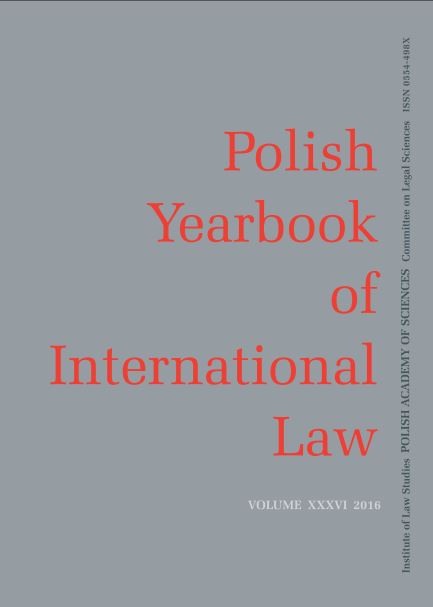The Nullum Crimen Sine Lege Principle in the European Convention of Human Rights: The Actual Scope of Guarantees
The Nullum Crimen Sine Lege Principle in the European Convention of Human Rights: The Actual Scope of Guarantees
Author(s): Aleksandra RychlewskaSubject(s): Law, Constitution, Jurisprudence, International Law, Human Rights and Humanitarian Law
Published by: Instytut Nauk Prawnych PAN
Keywords: ECHR; ECtHR; European Convention on Human Rights; European Court of Human Rights; nullum crimen sine lege
Summary/Abstract: The principle of nullum crimen sine lege expresses an old idea that only the law can prescribe a particular act as punishable. It is commonly understood as a requirement of sufficient definiteness of an offence, in particular – of a statutory description of an offence before it has been committed (lex scripta, lex praevia), and of clarity and precision in criminal provisions so as to enable an individual to conform with them (lex certa), as well as their strict interpretation (lex stricta). Nowadays the principle is an internationally recognized human right to foreseeable criminalization, guaranteed by, inter alia, Article 7 of the European Convention on Human Rights. However, the European Court of Human Rights seems to formulate two slightly different requirements on its basis, namely that the application of criminal law must be foreseeable for an individual and coherent with the “essence of an offence”. One may question whether this can serve as an adequate “shield” from arbitrariness on the part of State authorities. Nevertheless, the core aim of such a flexible approach is not to promote legal security for potential perpetrators, but to achieve better protection of human rights in general.
Journal: Polish Yearbook of International Law
- Issue Year: 2016
- Issue No: 36
- Page Range: 163-186
- Page Count: 24
- Language: English
- Content File-PDF

